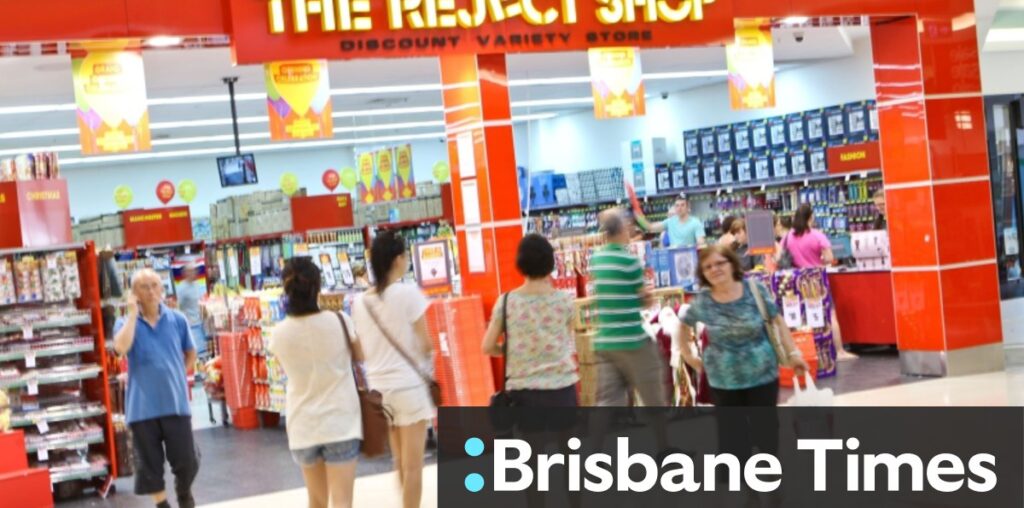Roy Morgan retail expert Laura Demasi said: “The challenge The Reject Shop has is similar to Big W in that it feels really low-brow, it really feels discount in their stores. This all comes back to the store experience – it feels cheap and difficult in there.
Loading
“There’s a lot of opportunity for the Reject Shop if they reinvent that store experience and the brand as well. But I think that’s what’s held them back, I just think it doesn’t have that vibe, that cheap-and-cheerful thing like there is with Kmart and Temu.”
Shopping on a budget no longer carries the stigma it once did with consumers – Demasi said consumers aren’t afraid to admit they shop at discount stores any more, as they feel the pinch from higher interest rates and inflation.
“In the last two years, people are trading down to cheaper brands and focusing more online, very much bargain-seeking behaviour. The types of people that probably didn’t really go to Kmart very often, or maybe went in and got the odd thing, goes to Kmart in an average month. It’s huge penetration into the population,” said Demasi.
In the United States, major discount store chains have been struggling, despite shoppers trading down in response to high living costs. Shares in major US player Dollar Tree are down more than 50 per cent this year, while Dollar General is down about 45 per cent.
At the start of the pandemic, investors jumped on The Reject Shop shares, rocketing the price from around $2.50 to above $8 a share in June 2020. The share price has more than halved since that initial spike and is currently sitting below $3.
But retail analysts from Jarden are tipping The Reject Shop will bounce back, outlining in a note last month that they believe the stock could outperform if the company can see off competition from the likes of Temu.
Brian Walker, founder of consultancy Retail Doctor Group, says discount shops like The Reject Shop have experienced static growth during cost-of-living pressures, and that its latest trading update showed more of a “break even” in profits.
“The Reject Shop is in an interesting position because it’s small format in higher rent areas. It’s typically done well in contracted markets, such as the one we’re in now,” he said.
“Kmart has been the success story of [the] discount department store cycle for a few years now. It’s positioned well, it’s created a very good brand image. It’s been super efficient in its retailing, and it’s grown quite aggressively,” said Walker, pointing to Wesfarmers’ recent results that were driven predominantly by Anko, Kmart’s in-house brand. “It’s really all coming out of Kmart.”
The Reject Shop did not respond to requests for comment.
The Business Briefing newsletter delivers major stories, exclusive coverage and expert opinion. Sign up to get it every weekday morning.


